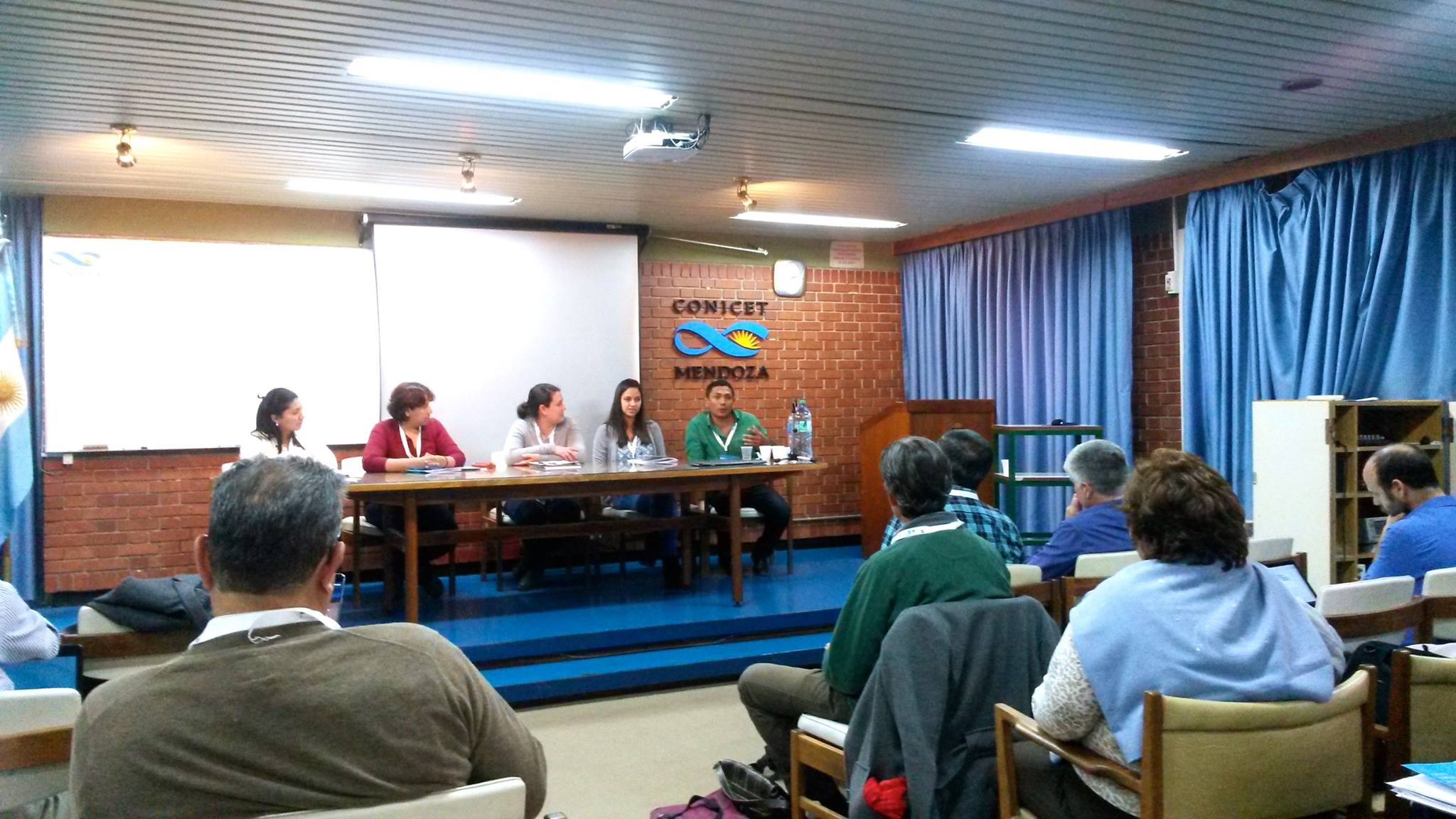 A recipient of an IWSN Scholarship, Jonathan Biggs is studying for an MSc in Environmental Management at UWE, Bristol. In the summer of 2016, he travelled to South America to conduct research.
A recipient of an IWSN Scholarship, Jonathan Biggs is studying for an MSc in Environmental Management at UWE, Bristol. In the summer of 2016, he travelled to South America to conduct research.
When it was first suggested that I could undertake research for my master’s thesis in South America, my supervisor suggested I time to trip to coincide with the Water Governance Workshop in Mendoza, Argentina. Several months later – following a short, stunning hop across the Andes from Santiago – I finally arrived in Mendoza. That same evening I was treated to a wonderful supper out in the country, laid on by Mendoza’s Department of Irrigation. The supper set the tone for what was to follow, with so much care, attention, and warmth shown to me and my fellow participants. The core group consisted of a mixture of well-renowned academics, PhD and master’s students, and a group of five people who had won highly competitive places to access travel funds – all of whom worked in water management in some way in their respective countries of Panama, Honduras, Venezuela and Mexico.
 The first day of the conference was open to the public. It was inspiring to see so many people in attendance. The large auditorium was packed, with only standing room for many. The Department of Irrigation gave an impressive presentation about their plans for water management in Mendoza, including the use of new real-time weather monitoring software MIDO and the development of an extensive educational programme. Other notable presentations dealt with deconstructing the meaning of ‘water management’, and the crucial nexus between water, energy, and food. The following two days were held in a more intimate setting, with presentations that included: ethical considerations in governing water resources; the work of UNESCO in supporting capacity building across the arid Americas; and a range of case studies from desalination across the border of United States and Mexico to issues in specific watersheds from Peru, Mexico and Chile. I was particularly interested to find out about the work of the MAPA project in Santiago, Chile, that brought together key stakeholders to discuss the key challenges in the watershed and to generate possible solutions, especially with regard to long-term drought, a phenomenon that is likely to be more prevalent in Chile with climate change. My MSc dissertation research focuses on reviewing Chile’s legal and institutional arrangements for water to see how well they’re able to deal with the challenges of climate change, and will refer to Santiago as a specific case study example.
The first day of the conference was open to the public. It was inspiring to see so many people in attendance. The large auditorium was packed, with only standing room for many. The Department of Irrigation gave an impressive presentation about their plans for water management in Mendoza, including the use of new real-time weather monitoring software MIDO and the development of an extensive educational programme. Other notable presentations dealt with deconstructing the meaning of ‘water management’, and the crucial nexus between water, energy, and food. The following two days were held in a more intimate setting, with presentations that included: ethical considerations in governing water resources; the work of UNESCO in supporting capacity building across the arid Americas; and a range of case studies from desalination across the border of United States and Mexico to issues in specific watersheds from Peru, Mexico and Chile. I was particularly interested to find out about the work of the MAPA project in Santiago, Chile, that brought together key stakeholders to discuss the key challenges in the watershed and to generate possible solutions, especially with regard to long-term drought, a phenomenon that is likely to be more prevalent in Chile with climate change. My MSc dissertation research focuses on reviewing Chile’s legal and institutional arrangements for water to see how well they’re able to deal with the challenges of climate change, and will refer to Santiago as a specific case study example.
Overall, the time in Mendoza provided me and my fellow participants with the chance to meet with some of the key players in water management across the arid Americas, as well as learning a great deal about the huge challenges ahead for managing water resources in the area due to increasing pressures from population growth, socio-economic development and climate change.
Thank you for this wonderful opportunity!
